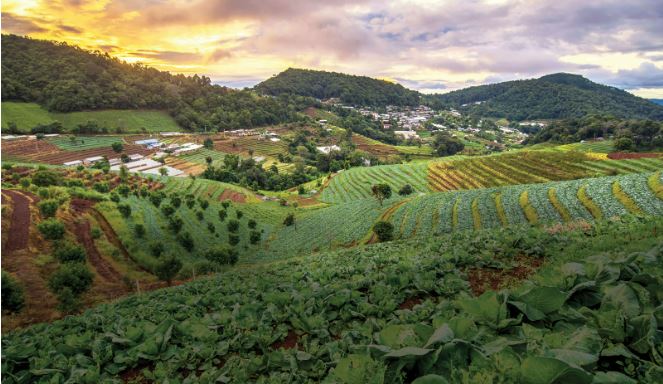
Smart organic farming and the food industry are two interconnected areas that are becoming increasingly important in today’s world. Organic farming is a method of agriculture that relies on the use of natural inputs and processes to grow crops and raise livestock, while the food industry involves the processing, packaging, and distribution of food products. In recent years, there has been a growing interest in both organic farming and the food industry, and a focus on developing more sustainable and efficient systems for producing and delivering food.
Organic farming is an approach that emphasizes the use of natural inputs and processes to grow crops and raise livestock. This includes using organic fertilizers, such as compost and manure, and avoiding the use of synthetic pesticides and herbicides. Organic farmers also focus on building healthy soil, promoting biodiversity, and using sustainable farming practices to ensure that the land remains productive over the long term. Organic farming is a more sustainable and environmentally friendly approach to agriculture that has many benefits for both farmers and consumers.
One of the main benefits of organic farming is that it produces food that is healthier and more nutritious. Organic crops are grown without the use of synthetic pesticides and herbicides, which can leave residues on the food and pose health risks to consumers. Organic farming also tends to promote greater biodiversity, which can lead to more nutrient-rich soil and healthier crops. This means that organic food is often richer in vitamins, minerals, and antioxidants than conventionally grown food.
The food industry, on the other hand, involves the processing, packaging, and distribution of food products. This is a complex and highly regulated industry that is responsible for ensuring that food is safe, nutritious, and of high quality. The food industry is also responsible for responding to changing consumer demands and trends, such as the growing interest in organic and sustainable food.
One of the key challenges facing the food industry is how to meet the growing demand for organic and sustainable food products. This requires developing more efficient and sustainable systems for producing and delivering food. This includes developing new technologies for food processing and packaging, improving supply chain management, and reducing waste and energy consumption throughout the food system.
Smart organic farming and the food industry are both important areas of focus for addressing these challenges. By adopting more sustainable and efficient farming practices, organic farmers can help to reduce the environmental impact of agriculture and produce food that is healthier and more nutritious. Similarly, by developing new technologies and processes for food processing and distribution, the food industry can help to ensure that organic and sustainable food products are more widely available and accessible to consumers.
In conclusion, smart organic farming and the food industry are two critical areas that are becoming increasingly important in today’s world. By working together to develop more sustainable and efficient systems for producing and delivering food, these two industries can help to ensure that we have access to healthy, nutritious, and sustainable food now and in the future.









